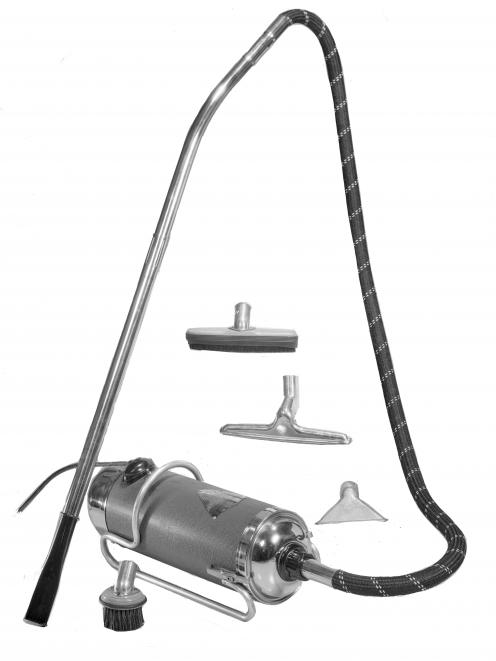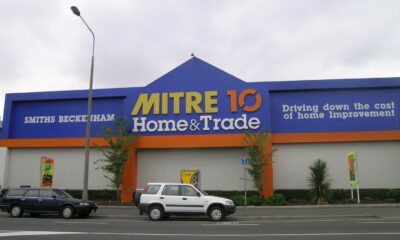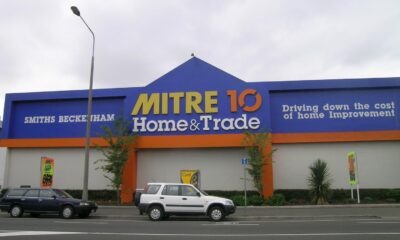Lifestyle
Oxford English Dictionary Embraces “Luxing” After Decades

The Oxford English Dictionary has officially recognized “luxing” as a New Zealandism in its latest update, a term that has been part of the local lexicon for nearly a century. The word, originating from the vacuum cleaner brand Electrolux, is now included in a new batch of words, highlighting its significance in New Zealand’s unique linguistic landscape.
The term “luxing” is derived from the original marketing of the Electrolux vacuum cleaner, which made its debut in New Zealand exactly 100 years ago. Christchurch entrepreneur Lancelot Shutte was instrumental in introducing the product, promoting it through home demonstrations to potential buyers in Dunedin. At that time, the compact design of the Electrolux set it apart from existing models and sparked interest across the country.
In the years following its launch, the Electrolux became so popular that the act of vacuum cleaning began to be colloquially referred to as “luxing.” This phenomenon illustrates how brand names can evolve into generic terms that capture everyday activities. According to Harry Orsman, a prominent figure in New Zealand English and the compiler of the Oxford Dictionary of New Zealand English, the term “luxing” first appeared in print in 1980 within Roger Hall‘s play, *Prisoners of Mother England*, written between 1977 and 1978.
From Slang to Recognition
Despite its long-standing presence in New Zealand, the inclusion of “luxing” in the Oxford English Dictionary has raised questions about the criteria used for word recognition. While the dictionary has traditionally taken a cautious approach to new words, many are left wondering why it took so long for “luxing” to gain official status. The challenge lies in the nature of slang, which often thrives in spoken language long before it appears in written form.
Historically, the Electrolux brand has been tied closely to New Zealand’s cultural identity, particularly in the South Island, where the term “luxing” is most commonly used. Residents of the North Island may refer to the activity simply as “hoovering,” highlighting regional variations in language. For many New Zealanders, “luxing” evokes fond memories of home and family life, making it a term steeped in local history.
The marketing strategies employed by Electrolux contributed to its lasting impact on everyday language. During the 1940s, for example, the company launched campaigns encouraging women to care for their nylons using Lux soap powder, cleverly associating their brand with domestic life. These advertisements sought to create a cultural connection that would ensure the brand remained relevant in consumers’ minds.
The Legacy of “Luxing”
As “luxing” gains recognition, it serves as a reminder of the fluidity of language and how brand names can transcend their commercial origins to become part of everyday vernacular. The term encapsulates a broader trend in linguistics where branding and colloquialism intersect, illustrating how language evolves over time.
In many ways, the inclusion of “luxing” in the Oxford English Dictionary is a celebration of New Zealand’s unique contribution to the English language. It reflects the creativity of its speakers and their ability to adapt language to suit their needs. As more words emerge from regional dialects and slang, they continue to enrich the tapestry of the English language globally.
The journey of “luxing” from a brand name to a widely recognized term underscores the importance of regional expressions in shaping national identity. It also highlights the role of linguistic change as a natural process, one that embraces innovation while honoring tradition. As language evolves, so too does our understanding of cultural heritage, making every new inclusion in the dictionary a significant milestone in preserving our collective history.
-

 World1 week ago
World1 week agoPrivate Funeral Held for Dean Field and His Three Children
-

 Top Stories2 weeks ago
Top Stories2 weeks agoFuneral Planned for Field Siblings After Tragic House Fire
-

 Sports3 months ago
Sports3 months agoNetball New Zealand Stands Down Dame Noeline Taurua for Series
-

 Entertainment3 months ago
Entertainment3 months agoTributes Pour In for Lachlan Rofe, Reality Star, Dead at 47
-

 Entertainment2 months ago
Entertainment2 months agoNew ‘Maverick’ Chaser Joins Beat the Chasers Season Finale
-

 Sports3 months ago
Sports3 months agoSilver Ferns Legend Laura Langman Criticizes Team’s Attitude
-

 Sports4 weeks ago
Sports4 weeks agoEli Katoa Rushed to Hospital After Sideline Incident During Match
-

 World2 weeks ago
World2 weeks agoInvestigation Underway in Tragic Sanson House Fire Involving Family
-

 Politics2 months ago
Politics2 months agoNetball NZ Calls for Respect Amid Dame Taurua’s Standoff
-

 Top Stories2 weeks ago
Top Stories2 weeks agoShock and Grief Follow Tragic Family Deaths in New Zealand
-

 Entertainment3 months ago
Entertainment3 months agoKhloe Kardashian Embraces Innovative Stem Cell Therapy in Mexico
-

 World4 months ago
World4 months agoPolice Arrest Multiple Individuals During Funeral for Zain Taikato-Fox





















